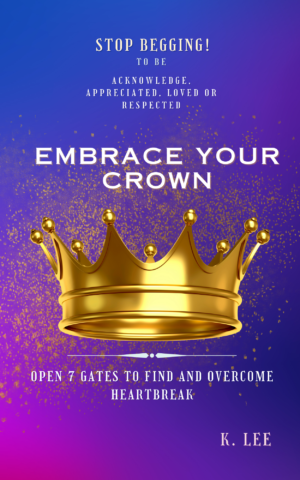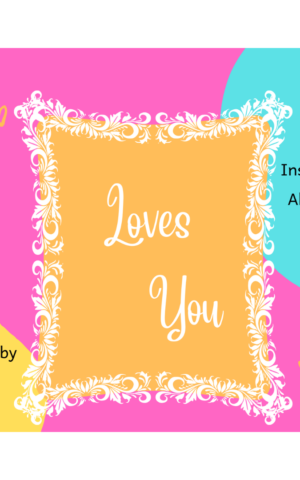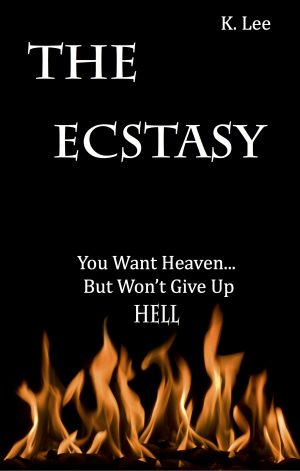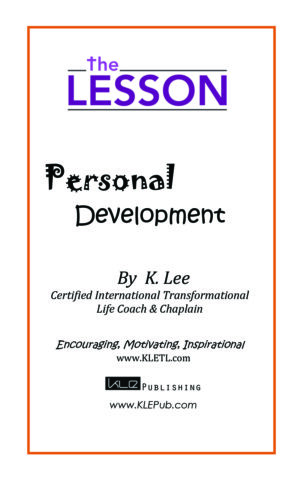Professional Book Editing Services for First-Time Authors
So, you’ve written your manuscript—congrats! But before you hit that “publish” button, there’s one critical step you can’t overlook: editing. This is where professional book editing services come in, and for first-time authors, they can be a game-changer. Let’s dive into everything you need to know about professional editing services and why they’re essential for your success.
Types of Editing Services Available
Developmental Editing
First up, we have developmental editing. This type of editing dives deep into the structure and content of your manuscript. It’s all about big-picture stuff: plot holes, character development, pacing, and overall flow. If you’re in the early stages of writing, developmental editing is invaluable. It helps shape your story and ensures your ideas are communicated effectively.
Line Editing
Next, there’s line editing, which is all about the words you’ve chosen. Line editors look at sentence structure, word choice, and the overall rhythm of your writing. They help enhance clarity and make sure your voice shines through. Think of it as polishing your diamond—you want to make it sparkle without losing its essence.
Copy Editing
Now, let’s talk about copy editing. This service focuses on grammar, punctuation, and spelling. Copy editors also look for inconsistencies and ensure your manuscript follows a specific style guide. It’s essential for making your writing professional and polished, so your readers can focus on your message rather than distractions in the text.
Proofreading
Finally, we have proofreading, the last line of defense before your book goes to print. Proofreaders do a final check for typos, formatting issues, and any lingering errors. It’s like giving your manuscript a last brush-up to ensure it’s flawless. After all, first impressions matter!
Benefits of Hiring Professional Editors
Expertise and Experience
Hiring a professional editor means you’re getting someone with experience in the industry. They’ve seen what works and what doesn’t, and their insights can elevate your manuscript to a whole new level. Imagine having a mentor who knows the ins and outs of publishing!
Objective Perspective
As a writer, you’re too close to your work to see its flaws. An editor provides an objective viewpoint that can highlight areas needing improvement. They can pinpoint confusing sections or plot holes that you might overlook. Fresh eyes can make all the difference!
Time-Saving
Let’s face it: writing a book is time-consuming. By hiring an editor, you can focus on what you do best—writing! Editors handle the nitty-gritty of revisions and corrections, allowing you to concentrate on your next project.
Improved Quality and Readability
Ultimately, the goal of professional editing is to enhance the quality of your book. A well-edited manuscript is more engaging and easier to read, which means readers are more likely to recommend it to others. And word-of-mouth? That’s priceless!
How to Choose the Right Editing Service
Identify Your Needs
Before you start your search, take a moment to assess what type of editing you need. Do you require developmental editing, or are you looking for a final proofreading pass? Knowing your needs will help you find the right editor.
Research Potential Editors
Once you know what you’re looking for, it’s time to do some digging. Check out potential editors’ portfolios, read testimonials, and look for their past work. This will give you an idea of their style and expertise.
Consider Their Process
Different editors have different workflows. Some might prefer to work closely with you throughout the process, while others might take your manuscript and return it with notes. Make sure you choose an editor whose process aligns with your expectations.
Evaluate Costs
Editing services can vary widely in price, so it’s essential to evaluate your budget. While you don’t want to skimp on quality, there are options for every budget. Remember, this is an investment in your book’s success!
Common Myths About Editing
“I can edit my own work.”
While self-editing is a valuable skill, it often doesn’t catch all the errors. Being too familiar with your work can blind you to its flaws. Trusting a professional ensures you receive an objective, thorough critique.
“Editing is too expensive.”
Editing can seem pricey, but think of it as an investment. A well-edited book is more likely to sell and attract readers. Plus, the insights and improvements you receive will help you grow as a writer.
“I’ll lose my voice.”
Many first-time authors worry that an editor will change their unique voice. In reality, a good editor enhances your voice while ensuring clarity and coherence. You’ll end up with a polished manuscript that still sounds like you!
Conclusion
In the competitive world of publishing, first-time authors must prioritize professional editing services. By investing in expert editors, you ensure your manuscript reaches its fullest potential, captivating readers and standing out in the market. So, take the plunge, hire an editor, and let your book shine!
FAQs
1. What is the difference between copy editing and proofreading?
Copy editing focuses on grammar, punctuation, and consistency, while proofreading is the final check for typos and formatting errors before publication.
2. How long does the editing process take?
The timeline can vary based on the editor’s workload and the complexity of your manuscript. Generally, it can take anywhere from a few weeks to several months.
3. Can I choose specific sections to edit?
Yes, many editors will work with you to focus on particular areas or sections of your manuscript that you feel need the most attention.
4. What should I prepare before sending my manuscript to an editor?
Ensure your manuscript is as polished as possible before submitting it. Prepare any specific notes on your goals, concerns, or areas you’d like the editor to focus on.
5. Are there different rates for fiction and nonfiction editing?
Rates can vary between genres due to factors like complexity and research needs. It’s best to discuss your specific project with potential editors to get accurate quotes.
Professional Book Editing Services for First-Time Authors
So, you’ve written your manuscript—congrats! But before you hit that “publish” button, there’s one critical step you can’t overlook: editing. This is where professional book editing services come in, and for first-time authors, they can be a game-changer. Let’s dive into everything you need to know about professional editing services and why they’re essential for your success.
Types of Editing Services Available
Developmental Editing
First up, we have developmental editing. This type of editing dives deep into the structure and content of your manuscript. It’s all about big-picture stuff: plot holes, character development, pacing, and overall flow. If you’re in the early stages of writing, developmental editing is invaluable. It helps shape your story and ensures your ideas are communicated effectively.
Line Editing
Next, there’s line editing, which is all about the words you’ve chosen. Line editors look at sentence structure, word choice, and the overall rhythm of your writing. They help enhance clarity and make sure your voice shines through. Think of it as polishing your diamond—you want to make it sparkle without losing its essence.
Copy Editing
Now, let’s talk about copy editing. This service focuses on grammar, punctuation, and spelling. Copy editors also look for inconsistencies and ensure your manuscript follows a specific style guide. It’s essential for making your writing professional and polished, so your readers can focus on your message rather than distractions in the text.
Proofreading
Finally, we have proofreading, the last line of defense before your book goes to print. Proofreaders do a final check for typos, formatting issues, and any lingering errors. It’s like giving your manuscript a last brush-up to ensure it’s flawless. After all, first impressions matter!
Benefits of Hiring Professional Editors
Expertise and Experience
Hiring a professional editor means you’re getting someone with experience in the industry. They’ve seen what works and what doesn’t, and their insights can elevate your manuscript to a whole new level. Imagine having a mentor who knows the ins and outs of publishing!
Objective Perspective
As a writer, you’re too close to your work to see its flaws. An editor provides an objective viewpoint that can highlight areas needing improvement. They can pinpoint confusing sections or plot holes that you might overlook. Fresh eyes can make all the difference!
Time-Saving
Let’s face it: writing a book is time-consuming. By hiring an editor, you can focus on what you do best—writing! Editors handle the nitty-gritty of revisions and corrections, allowing you to concentrate on your next project.
Improved Quality and Readability
Ultimately, the goal of professional editing is to enhance the quality of your book. A well-edited manuscript is more engaging and easier to read, which means readers are more likely to recommend it to others. And word-of-mouth? That’s priceless!
How to Choose the Right Editing Service
Identify Your Needs
Before you start your search, take a moment to assess what type of editing you need. Do you require developmental editing, or are you looking for a final proofreading pass? Knowing your needs will help you find the right editor.
Research Potential Editors
Once you know what you’re looking for, it’s time to do some digging. Check out potential editors’ portfolios, read testimonials, and look for their past work. This will give you an idea of their style and expertise.
Consider Their Process
Different editors have different workflows. Some might prefer to work closely with you throughout the process, while others might take your manuscript and return it with notes. Make sure you choose an editor whose process aligns with your expectations.
Evaluate Costs
Editing services can vary widely in price, so it’s essential to evaluate your budget. While you don’t want to skimp on quality, there are options for every budget. Remember, this is an investment in your book’s success!
Common Myths About Editing
“I can edit my own work.”
While self-editing is a valuable skill, it often doesn’t catch all the errors. Being too familiar with your work can blind you to its flaws. Trusting a professional ensures you receive an objective, thorough critique.
“Editing is too expensive.”
Editing can seem pricey, but think of it as an investment. A well-edited book is more likely to sell and attract readers. Plus, the insights and improvements you receive will help you grow as a writer.
“I’ll lose my voice.”
Many first-time authors worry that an editor will change their unique voice. In reality, a good editor enhances your voice while ensuring clarity and coherence. You’ll end up with a polished manuscript that still sounds like you!
Conclusion
In the competitive world of publishing, first-time authors must prioritize professional editing services. By investing in expert editors, you ensure your manuscript reaches its fullest potential, captivating readers and standing out in the market. So, take the plunge, hire an editor, and let your book shine!
FAQs
1. What is the difference between copy editing and proofreading?
Copy editing focuses on grammar, punctuation, and consistency, while proofreading is the final check for typos and formatting errors before publication.
2. How long does the editing process take?
The timeline can vary based on the editor’s workload and the complexity of your manuscript. Generally, it can take anywhere from a few weeks to several months.
3. Can I choose specific sections to edit?
Yes, many editors will work with you to focus on particular areas or sections of your manuscript that you feel need the most attention.
4. What should I prepare before sending my manuscript to an editor?
Ensure your manuscript is as polished as possible before submitting it. Prepare any specific notes on your goals, concerns, or areas you’d like the editor to focus on.
5. Are there different rates for fiction and nonfiction editing?
Rates can vary between genres due to factors like complexity and research needs. It’s best to discuss your specific project with potential editors to get accurate quotes.





